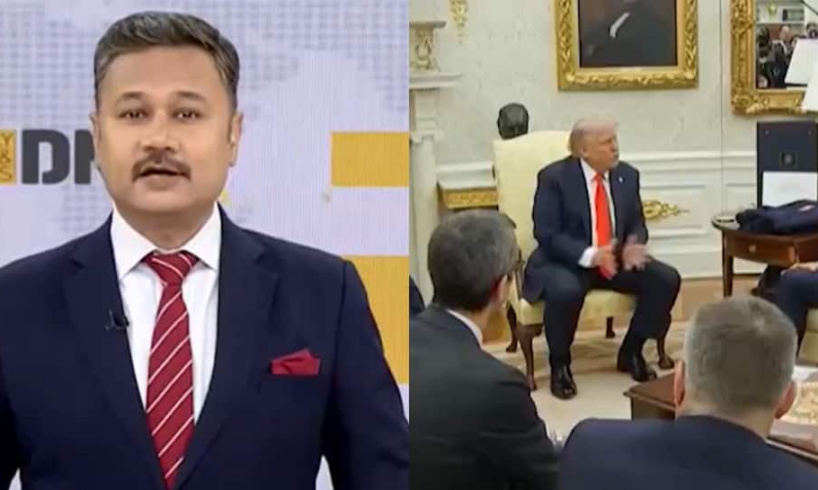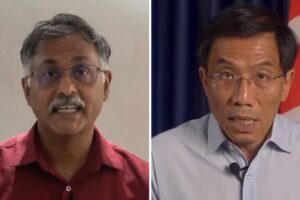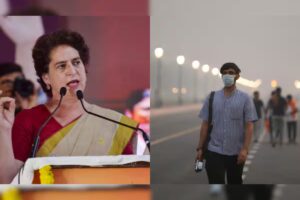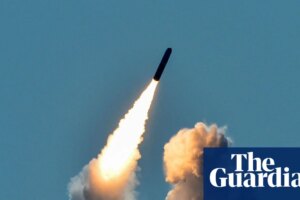
In a striking turn of events, United States President Donald Trump has been dealt setbacks from three different regions of the world. These developments come after Trump imposed a 25 percent tariff on Indian goods, giving only a 1 percent concession from his earlier announcement of 26 percent. In contrast, he showed leniency towards Pakistan, reducing its proposed tariff from 29 percent to 19 percent and even signing an oil deal with the country—an action perceived as an attempt to sideline India.
But India has delivered a swift response within 24 hours, signaling that this battle may not go the way Trump had hoped. In today’s episode of DNA, Zee News analysed the implications of the tariff on India for the United States:
Watch Full DNA Episode Here:
#DNA | मुनीर के जाल में फंसे ट्रंप..बलोच काटेंगे ‘पंख’! बलोचिस्तान में ट्रंप के ख्वाब के ‘चीथड़े-चीथड़े’!#UnitedStates #DonaldTrump #Pakistan #TariffWar #Balochistan @pratyushkkhare pic.twitter.com/oyCqWFkoez
— Zee News (@ZeeNews) August 1, 2025
No India-US F-35 Deal?
India has decided not to pursue the purchase of the fifth-generation American fighter jet F-35. This move has been widely interpreted as a direct response to the U.S. tariff decision. Despite Trump’s wish for India to buy the F-35, reports from American media stated that India has no interest in the deal.
According to these reports:
– India is not keen on acquiring the F-35.
– The decision is being viewed as a strategic retaliation.
– India is now prioritizing indigenous design and production in defense.
– The focus has shifted to AMCA—India’s own fifth-generation fighter jet program.
– India is exploring models that ensure full technology transfer and domestic production.
– Russia has already offered its Su-57 fifth-generation jet under such terms, making it a more attractive partner for India.
The Ministry of External Affairs, in a written reply in Parliament, confirmed that no formal discussions have taken place with the U.S. regarding the F-35 purchase.
As Mahatma Gandhi once said, “First they ignore you, then they laugh at you, then they fight you, then you win.”
Second Blow from Balochistan
While Trump grows closer to Pakistan, leaders from Balochistan have openly challenged the US-Pakistan oil deal. During a recent dinner at the White House, Pakistan Army Chief Asim Munir allegedly presented an exaggerated picture of oil reserves in Pakistan to Trump. However, Baloch leaders have dismissed these claims as false and warned Trump of being misled.
According to Meer Yar Baloch, a prominent Baloch leader, Pakistan misinformed the U.S. about the presence of oil. The actual reserves are in Balochistan, not in Punjab or Sindh.
Balochistan holds rich deposits of oil, natural gas, copper, lithium, uranium, and other rare minerals. Baloch leaders assert that these resources belong to the Baloch people, not to Pakistan, China, or any foreign power.
This signals that the Baloch movement will continue its struggle to protect these resources from foreign exploitation.
Third Setback from Russia
Trump’s third setback comes from Moscow. Amid rising tensions, Russia has made it clear that it will not yield to American pressure.
A Tale of Two Tariffs
A closer look at Trump’s tariff decisions reveals a stark contrast. While India faced a 25 percent tariff (down from the originally proposed 26 percent), Pakistan—originally slated for a 29 percent tariff—received a substantial reduction to 19 percent, along with a new oil deal. Bangladesh, too, was hit with a 20 percent tariff, still less than India.





